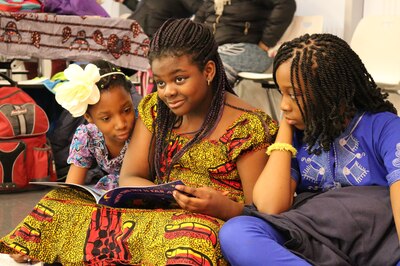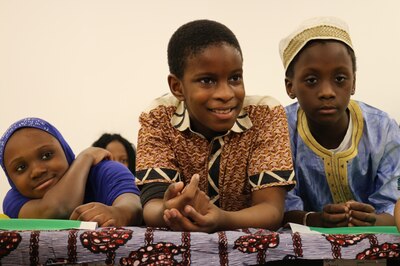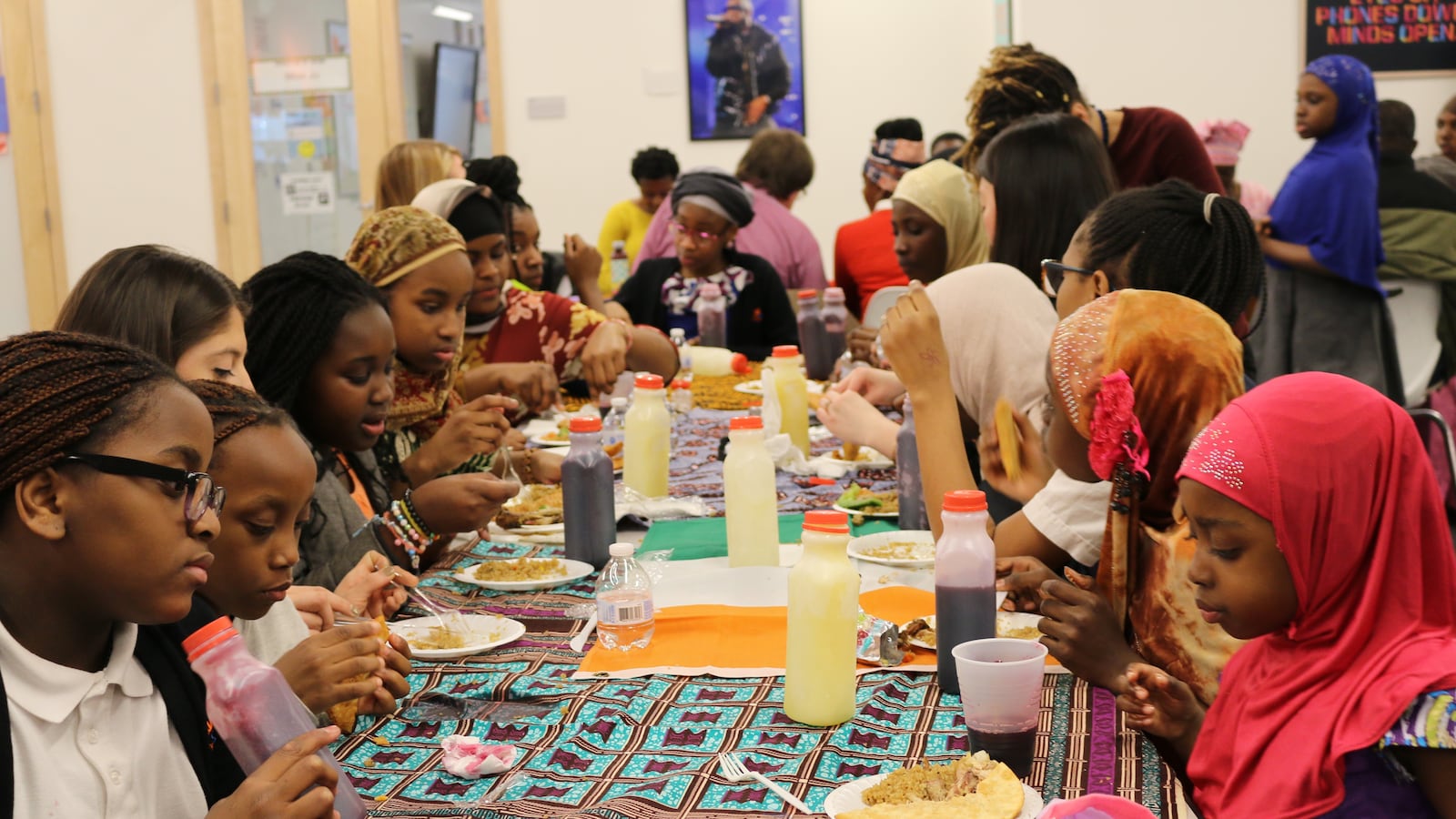Aboudoulaye Adizetou’s phone dinged with text message after text message from her daughter. Was Adizetou bringing the right hijab to school — the one that would match the rust-orange dress she planned to change into after the bell rang?
That afternoon, Children’s Aid College Prep Charter School transformed its cafeteria for Celebrate Africa, an event for the school’s sizeable community of immigrant families. With African music blaring, teachers and staff served a warm meal of fried fish patties, and Senegalese chicken with thick slices of tomatoes and cucumbers. Flags from Nigeria, Ghana, and Cameroon served as tablecloths.
“Somewhere else, Africans are the last person they think about,” said Adizetou, who is from Togo. “But I think here, we are first.”
Celebrate Africa started as a way for the school to connect with families whose needs had largely gone under the radar. Children’s Aid College Prep, in the Morrisania neighborhood of the Bronx, tracks students’ attendance, behavior, grades, and even whether students are out of uniform. On every measure, students from African families were doing well, so the school had little reason to engage with them — until the staff set out to change that.
They started by throwing a party.
Now, Celebrate Africa takes place every few months, and it seems to have grown beyond a typical evening cultural celebration. Parents at a recent event agreed: starting with sharing meals and customs, the school has transformed the way it serves its African families — an especially notable move at a time when the bitter national debate over immigration often spills into classrooms.
“We hear from our kids. They are bombarded by different messages. And we want to be clear: We support our immigrant families,” said Laura Crowley, the school’s academic dean.
Children’s Aid College Prep’s work with African families had an unhappy beginning: the Ebola crisis that began in 2014 and went on to claim more than 11,000 lives across West Africa. As hysteria over the deadly virus mounted, so did reports of bullying of African students in New York schools, including at Children’s Aid College Prep.
For Lyrica Fils-Aimé, a social worker who coordinates many of the school’s social services, it was a reminder that there was more work to do.
Fils-Aimé estimates that fewer than 20 percent of the school’s students are African — most are Caribbean and Hispanic — but that still means almost 100 students or their families come from the continent. She recalled one boy who, despite having an obviously African name, insisted that he was Jamaican. That was before Children’s Aid College Prep started working to connect with African families.
“I said, you know what, let’s just engage them,” Fils-Aimé said.

At the first Celebrate Africa about two years ago, school staff were unsure what meals to order or from where. They turned to parents, who were happy to explain where to buy traditional fabrics to decorate the tables and how to eat African foods.
The script was flipped: Parents played the role of teacher, helping classroom educators navigate new experiences.
“It was really powerful, I think, for the families to see the teacher be in an uncomfortable space. The parents were coming to the school and being in an uncomfortable space all the time,” Fils-Aimé said. “Then the parent is the expert. Those moments are how we got people to realize, ‘These people are here. They know stuff.’”
Getting there wasn’t always easy. Adizetou’s daughter was excelling at Children’s Aid College Prep, so she decided to enroll her younger son as well. But her experience soured as she began receiving constant calls home about her son’s behavior.
One morning, a call came after he had been in class for only an hour. Adizetou had had enough. She went to the school and cried.
“That day, I said, ‘No, this is happening because of my son’s color and where we came from,’” Adizetou said.
Fils-Aimé had already noticed that teachers seemed to have a harder time connecting with African parents — something she called “disturbing.” Many African children came to school on time, excelled in class, and were well behaved. When things went wrong, however, parents and teachers didn’t know how to work together to solve them.
“They would just kind of not engage each other,” she said. “It just fell off, and the issue wouldn’t get resolved.”
The school added additional training for teachers. In one session, they thought about barriers that might make it difficult to communicate with parents who speak other languages. For example: Imagine a teacher describing a classroom activity to parents as “a piece of cake.”
“An immigrant person who, English is a second language, does not necessarily know that idiom,” said Monique Fletcher, who works on parent engagement for Children’s Aid. “How do you simplify that language without dumbing it down?”
There were some breakthroughs. The school no longer hosts a “Literacy Night,” which African parents rarely showed up to. Instead, they invite parents to “Reading Night,” and families come to read with their children. Literacy “means stuff to educators, not necessarily parents,” Fletcher said.

Along the way, Celebrate Africa became more than a party. Food and music are constants, but now they accompany sessions on how to identify and treat mental illness and, after the school had to make a few calls to child welfare services, tips for disciplining children at home.
Now, “It’s easier to have those conversations,” Fletcher said. “We had good relationships with the families, so they understand where we’re coming from.”
Families say they started turning to staff when trouble at home affected the classroom. When Abdulaye Bathio’s wife left home with his children in tow, staff from Children’s Aid College Prep called to ask why his daughter hadn’t been in class. Worried, he went to the school to explain.
Not only did staff there help him gain custody of his children, but they accompanied him to the public assistance office to find better housing and provided fresh school uniforms.
“They take care of everyone here,” said Bathio, who is from Mauritania. “We love it.”

